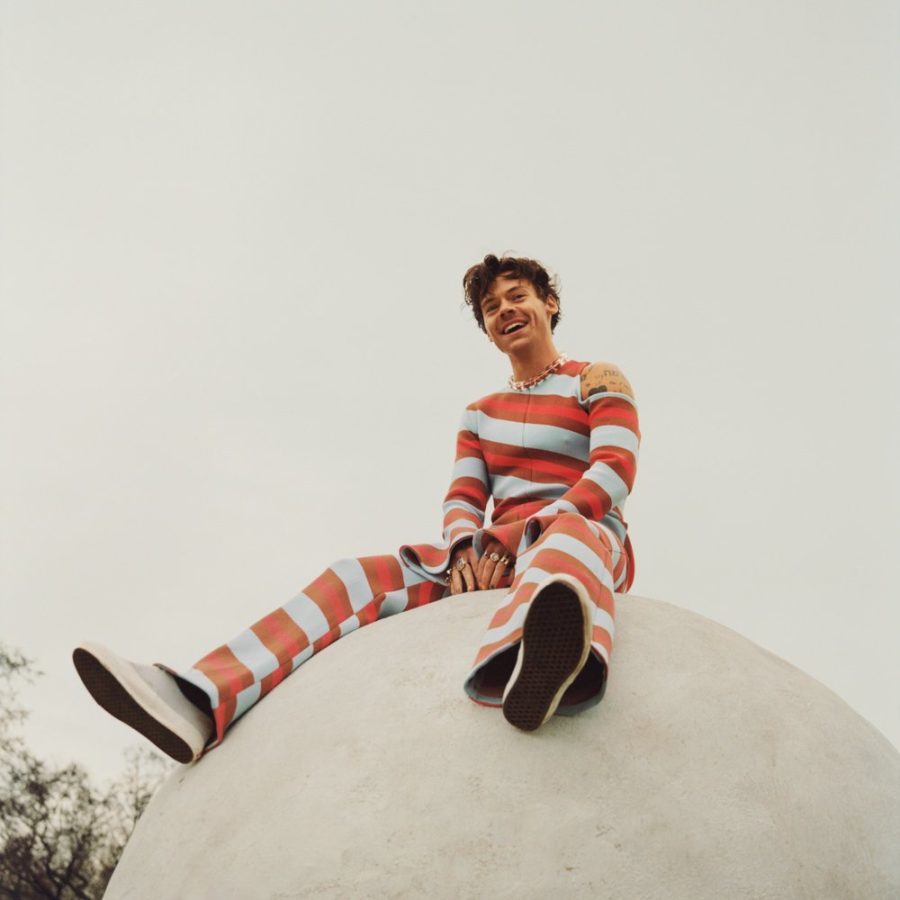The Cult of Celebrity 101
Harry Styles
September 22, 2022
“Harry Styles and the Cult of the Celebrity: Identity, the Internet and European Pop Culture” has been approved to be taught by Texas State University professor, Louie Dean Valencia, in Spring 2023.
The course takes an enigmatic approach at instruction by detailing the tribulations of contemporary society through the lens of one of the most recognized British people. That person being none other than, Harry Styles.
In an interview with NPR, Valencia said “[He] wants students to not just learn about contemporary history, but hard skills they can use. Like how to manage a social media campaign.”
His motive behind using Styles as the reference point for the course boiled down to the length at which Styles had been famous. His career can almost be used as a petri dish to examine the societal and cultural changes within the past 12 years.
It’s true that many of the beliefs and values we hold close have been passed down by a “charismatic authority” according to Dr. Stephanie McClure, GC professor of sociology. When someone possesses the charisma or social credibility that the status of ‘celebrity’ can give someone, people will naturally search for attributes within that ‘celebrity’ or ‘figure’ that they themselves can exhibit within their own lives.
Valencia tweeted that the course will open up talking about Little Richard; more specifically, how there would be no Harry Styles without a Little Richard.
Little Richard was one of the first male celebrities to openly express some form of androgynous behavior whether than be in what he wore or how he carried himself. Little Richard was a black male in the 40s acting in ways that quite literally threatened his existence for a time period. Richard’s stoicism paved the way for acts such as Prince, Michael Jackson, Mick Jagger and Harry Styles.
The concept of celebrity and pop-culture seemingly becomes engrained into to our everyday lives considering how our phones have now become a true extension ourselves. As each generation ages, more media is invented, increasing accessibility to pop-culture. To keep these newer generations engaged, schools have begun to utilize pop culture in academic settings.
Similar to Valencia’s course on Harry Styles, GC’s Swansonomics course taught by Professor Brooke Conaway also incorporates pop culture into the classroom. By blending the philosophy of a character from the popular TV show “Parks and Recreation”, Ron Swanson, and anecdotes from the show Parks and Rec to offer a more digestible approach towards the more complex concepts that exist within economics.
“The show contains a vast number of interesting examples I thought would help students become more interested in and better understand course content,” said Conaway. “So, it was a natural step to create a GC1Y course based on the show.”
Conaway finds that using clips from the show allows students to draw better conclusions during Exams considering that they have more of a recognizable reference point from the clips in question.
When asked about the longevity of the pop-culture courses that exist within the genre of Swansomomics and the Texas University Harry Styles course, Conaway offered an insightful way of looking at things.
“I don’t think courses like this are a fad, but the media used to teach them will likely fade in popularity and be replaced by new media examples,” said Conaway. “The debate concerning the appropriate role of government will continue to be relevant and important, even if “Parks and Rec” is no longer a popular show.”







